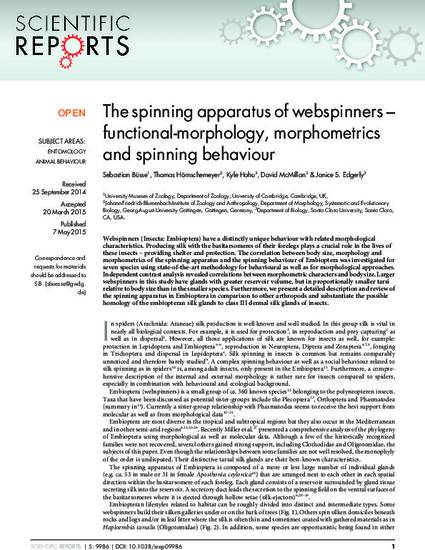
Webspinners (Insecta: Embioptera) have a distinctly unique behaviour with related morphological characteristics. Producing silk with the basitarsomeres of their forelegs plays a crucial role in the lives of these insects – providing shelter and protection. The correlation between body size, morphology and morphometrics of the spinning apparatus and the spinning behaviour of Embioptera was investigated for seven species using state-of-the-art methodology for behavioural as well as for morphological approaches. Independent contrast analysis revealed correlations between morphometric characters and body size. Larger webspinners in this study have glands with greater reservoir volume, but in proportionally smaller tarsi relative to body size than in the smaller species. Furthermore, we present a detailed description and review of the spinning apparatus in Embioptera in comparison to other arthropods and substantiate the possible homology of the embiopteran silk glands to class III dermal silk glands of insects.
DOI: 10.1038/srep09986

Supplementary Information
This work is licensed under a Creative Commons Attribution 4.0 International License. The images or other third party material in this article are included in the article's Creative Commons license, unless indicated otherwise in the credit line; if the material is not included under the Creative Commons license, users will need to obtain permission from the license holder in order to reproduce the material. To view a copy of this license, visit http://creativecommons.org/licenses/by/4.0/